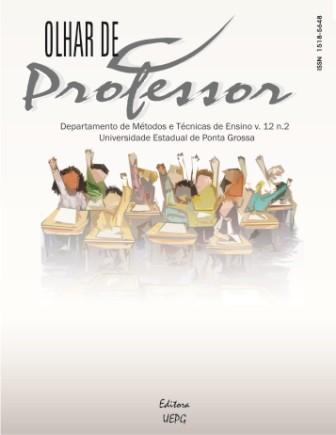TEXTOS LITERÁRIOS E A FORMAÇÃO DO PROFESSOR: NOVAS POSSIBILIDADES DE LEITURA - Doi: http://dx.doi.org/10.5212/OlharProfr.v.12i2.389401
Main Article Content
Abstract
O presente trabalho pretende abordar a importância do uso do texto literário em uma turma de Licenciatura da Universidade Federal Fluminense como veículo de (re)leitura de sentidos sobre práticas instituídas de formação do professor e processos envolvidos nas relações do ensinar e do aprender. Para isso será realizado uma análise do relato de alunos oriundos de diversos cursos a partir da leitura e discussão do conto “O Retrato Oval” de Edgar Allan Poe. A possibilidade de estabelecer relações entre a temática do conto e as experiências do contexto escolar viabiliza um canal de expressão capaz de afetar o leitor emocional e cognitivamente, oferecendo novas oportunidades de análise de tais experiências. Aqui o potencial simbólico de contos e crônicas da literatura universal será compreendido na perspectiva de Walter Benjamin sobre a narrativa e a leitura compreendida como uma experiência subjetiva e estética nomeada pelo jovem Vygotsky de crítica de leitor.
Downloads
Article Details
Authors who publish in this journal agree with the following terms:
a) Authors keep the copyrights and concede the right of its first publication to the magazine. The work piece must be simultaneously licensed on the Creative Commons Attribution License which allows the paper sharing, and preserves both the author identity and the right of first publication to this magazine.
b) Authors are authorized to assume additional contracts separately, to not-exclusively distribution of the paper version published in this magazine (e.g.: publish in institutional repository or as a book chapter), with the author identity recognition and its first publication in this magazine.
c) Authors are permitted and stimulated to publish and distribute their papers online (e.g.: in institutional repository or on their personal webpage), considering it can generate productive alterations, as well as increase the impact and the quotations of the published paper.
d) This journal provides public access to all its content, as this allows a greater visibility and reach of published articles and reviews. For more information on this approach, visit the Public Knowledge Project, a project that developed this system to improve the academic and public quality of the research, distributing OJS as well as other software to support the publication system of public access to academic sources.
e) The names and e-mail addresses on this site will be used exclusively for the purposes of the journal and are not available for other purposes.

This work is licensed under a Creative Commons Attribution 4.0 International License.





